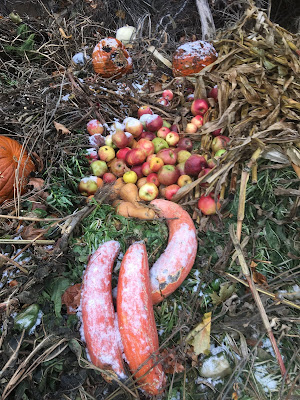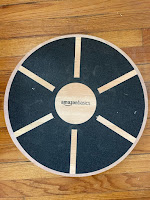It’s natural for people to think about the future. To
wonder what will happen. To worry about it. When making decisions, we try to
predict the future. We think about things that have happened in the past. We
imagine what it would be like if that happened now. We imagine how it would
feel. It can feel impossible to make a decision when you don’t know everything.
It often seems like if only you knew what would happen, it would be so much
easier.
But I am so grateful that we don’t know what will happen
in the future. It means life can surprise us. And sometimes, those surprises
are truly awful. But sometimes, they are incredible, better than we could have
ever imagined.
I would’ve made most of the hardest decisions in my life
differently if I’d known what would happen. I would’ve chosen the safer option,
the one I thought would help me avoid pain.
If I had known how sick I’d get in college, I never would’ve
gone to school four hours away from my family. Two years later when I had to
decide if I wanted to move across the country for graduate school, I was again
worried about my health. But I chose to believe it could be okay, because by
that time, it was. If I had known that I’d get sick again, I don’t think
there’s any way I could’ve chosen to come to school anyway.
It has been psychologically proven that people will do
more to avoid being in pain than they will to pursue pleasure. And I know
that’s exactly what I do. I am sure that if I knew how sick I’d get in graduate
school, I wouldn’t have come. If I’d known how difficult it would be to get
good medical care here, I wouldn’t have come. And yes, it’s been terrible.
There have been hours, days, and weeks where I’ve wondered how I’ll survive.
I’ve considered dropping out more than a few times-even though I love the
program, sometimes I think I’m too sick to do it. If I knew how painful some of
these times would be, I never would have been able to choose it.
But I’m so glad I did. Because I came to graduate school
here, I’ve gotten to work my dream job. I’ve gotten work in a whole new
industry that didn’t exist where I’m from, alongside colleagues who are
passionate about their work. And I’ve had fun: I’ve made incredible friends.
I’ve gone on adventures to explore this new state. I’ve even seen the Northern
Lights, one of my lifelong goals.
 |
| A first glimpse of the Northern Lights |
There’s a Nelson Mandela quote, “May your choices reflect
your hopes, not your fears.” To me, that quote is everything. When we’re
concerned about our pain, it’s so easy to be controlled by our fears. And
sometimes, that is necessary. There are often things we legitimately can not do
because we’re sick. But it can also be so easy to listen to that voice of fear
when we don’t need to.
I think one of the most incredible gifts we’re given as a
species is that we don’t know what will happen next. We can worry about it, we
can imagine different situations. But we don’t know until it happens. And while
that can seem scary, I think it makes us incredibly lucky because it gives us
the chance to choose hope instead of avoiding pain.
The next time you’re trying to make a decision and find
yourself wishing that you knew what would happen, try pausing. Remind yourself
that you’ll never know what will happen. You could imagine a million scenarios
and they could all be wrong. Instead, try to notice which choice you’re tempted
to make to avoid pain, and which choice follows your hopes.









